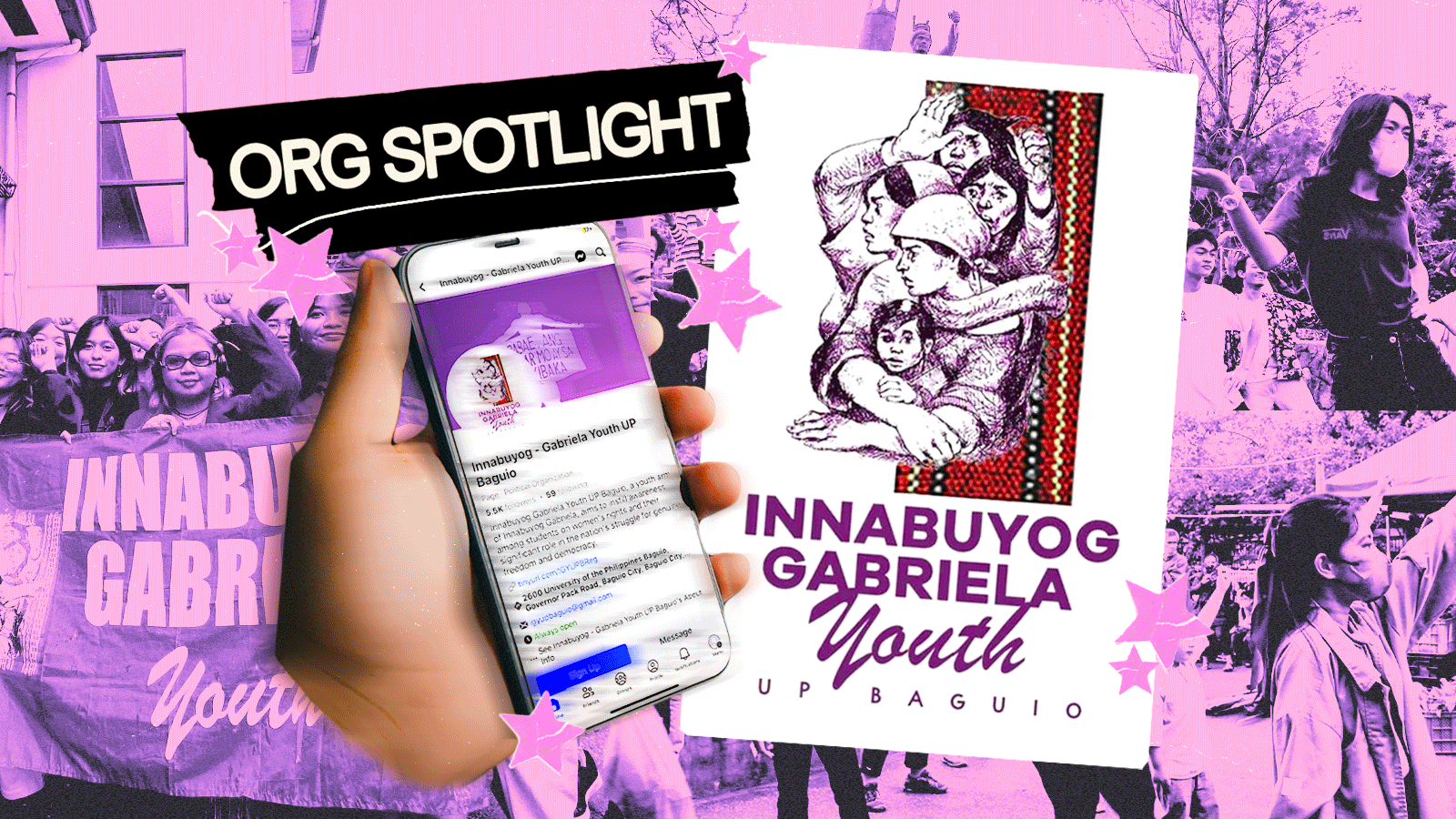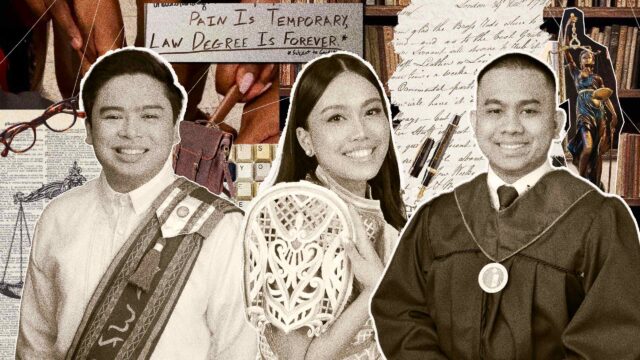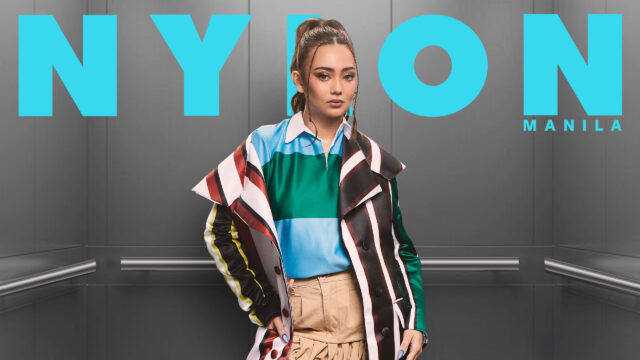Student leader and Innabuyog-Gabriela Youth UP Baguio chairperson Aya Abillar talks about how the organization fights to uphold women’s rights and the role of youth in collective liberation.
Trigger warning: this article includes mention of gender-based violence and assault.
Related: Abante Babae: 7 Filipino Films That Celebrate Women Empowerment
In the last few decades, there have been significant developments in the women’s movement both globally and locally. However, the question remains—are women truly free? With gender gaps in everything from employment to earnings, ever-present threats of gender-based violence, rampant cases of sexual assault, and systemic barriers that marginalize communities of women, the resounding answer very clearly seems to be no—and no amount of pushback along the lines of “But women can do and be anything now! What more do they want?” can change that.
Young women are leading the charge in terms of activism, advocating for their own rights and welfare as well as others’ and organizing and protesting against inequality and injustice. They not only seek personal empowerment, but collective liberation from all the forces that limit women. Plenty of organizations, alliances, and communities exist in the Philippines, and one in particular can be found up in the mountains of the Cordillera region, where proactive and critical students work collectively for the pursuit of freedom.
BREAKING BARRIERS TO FREEDOM
Innabuyog-Gabriela Youth is a student-led organization at the University of the Philippines Baguio. It is a university chapter of Innabuyog, a regional alliance of indigenous women’s organizations in the Cordillera.
The organization seeks to foster an awareness among women and youth about women’s rights, particularly Indigenous women’s rights, as the Cordillera region is home to several indigenous groups that face a myriad of threats to their land, culture, and livelihood. Using an intersectional and class-conscious approach, Innabuyog-Gabriela Youth wants to make meaningful change in law, in systems, and in practice in order to build a gender-sensitive, class-conscious community and end all forms of violence against women.
The organization is currently headed by sophomore and Anthropology major Aya Abillar, serving as its chairperson, primary spokesperson, and representative. We got to hear from the 20-year old student leader all about IGY and their hopes to build a better present and future.
Could you tell us briefly about Innabuyog-Gabriela Youth as an organization and the work that you do?
Innabuyog Gabriela Youth is a national democratic mass organization in UP Baguio which promotes the rights and welfare of women, especially the women youth of Cordillera.
It comes from the Kalinga term, “Innabuyog,” referring to the practice of Indigenous peoples in the Cordillera of helping each other through collective, cooperative work. “GABRIELA” is appended in recognition of Gabriela Silang’s contribution to the overall Filipino struggle for liberation. “Youth” acknowledges the historical role of the Filipino youth in pursuing meaningful social change.
What are some of your main projects and initiatives?
TIGNAN: Nagsagawa ng 🌹Rose-to-Oppose🌹 ang komunidad ng UP Baguio sa pangunguna ng IGY UPB upang kolektibong tutulan ang lahat ng porma ng pang-aabusong danas ng mga kababaihan. pic.twitter.com/FC1LgFQSYN
— Innabuyog Gabriela Youth UP Baguio (@igyupb) March 7, 2024
Some of Innabuyog-Gabriela Youth’s main initiatives include conducting regular educational discussions, basic mass integration, as well as protest actions and mobilizations to raise awareness on the pertinent issues that Filipino women face.
IGY currently spearheads the campaign for necessary revisions in the UP Anti-Sexual Harassment Code of 2017 in forwarding the UPB Anti-Sexual Harassment Demands of 2022 for a more accessible, systematic, and concise processing of sexual harassment-related grievances.
Other main projects include One Billion Rising, 18 Days of Activism from the International Day for the Elimination of Violence Against Women leading up to the International Human Rights Day, Women’s Month during March, and Ladies’ Night—activities and events that seek to consolidate the calls of women youth for genuine safe and democratic spaces.
With every project or initiative or protest, what do you hope to accomplish or achieve?
We hope to achieve actual and meaningful change. More than raising awareness, we want a society that recognizes and prioritizes women’s rights and contribution to production; a country with self-determination; a national industry that relies on itself, with equal opportunities for women and all gender identities in economic, political, and cultural spheres; and lastly, a community where gender-based oppression, exploitation, discrimination, and violence can no longer foster.
What do you think drives students to join Innabuyog-Gabriela Youth? What drove you to join and even take up a leadership position?
I feel that the alienation young women feel from their experiences of oppression and perception of their place in society relative to their gender and class push them to seek a safe space with other women where they can make sense of these collectively. At least, this was true for me.
I committed myself to the best of my abilities to IGY and for the common cause of national democracy and genuine liberation for all women and gender-oppressed people. I’m also thankful to my fellow sisters in struggle for deeming me capable enough to lead and serve the masses together.
As an organization dedicated to serving communities of women, what can you say about the unfortunately rampant instances of assault and sexual misconduct among even progressive organizations?
I think that all progressive organizations are responsible for enacting systems of care and safety in consolidating victims, and to address concerns of safety, transparency, and accountability in these processes. We don’t shy away from criticism, because that’s how we can collectivize and move forward, so that we remain true to our cause of ensuring the welfare of women in the movement.
We are unyielding in our commitment to a nationalist, scientific, and mass-oriented liberation movement that is intolerant of abuse and sexual misconduct. And we condemn all perpetrators of assault and abuse in progressive spaces. A rigorous investigation and accountability process is needed in handling these cases.
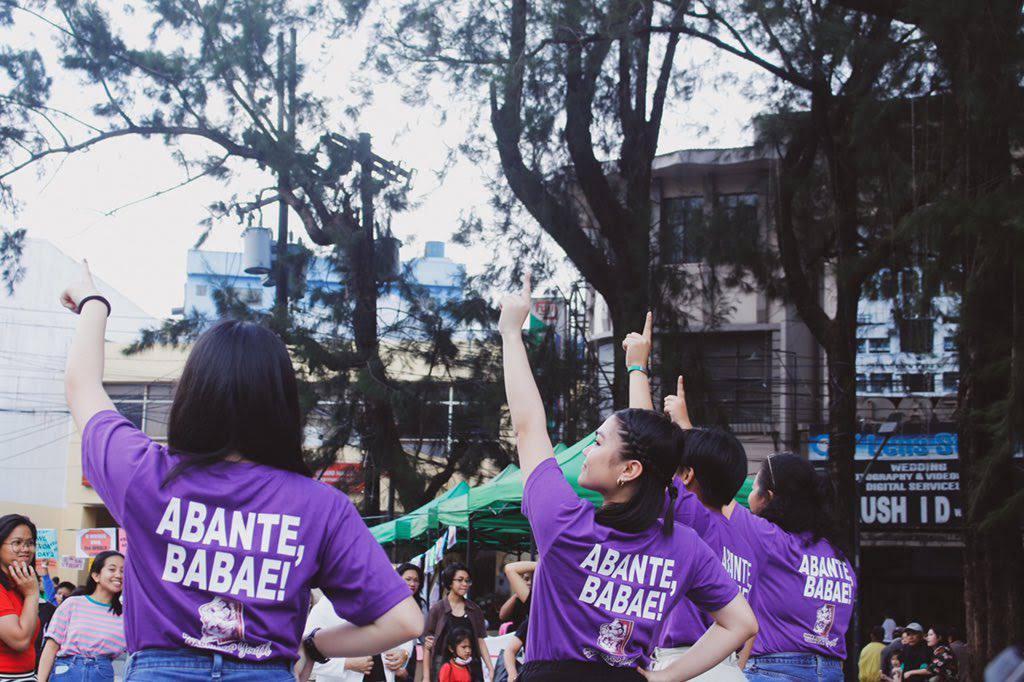
What do you think are the biggest challenges that Filipino women face today?
I would say the biggest challenges that Filipino women face today are the systemic barriers set by the current macho-feudal and patriarchal society that keep women vulnerable to gender-based violence and harassment, lock them out of the formal economic sphere with more women either underpaid and in low-paying jobs, or not paid at all for their domestic labor.
There’s also a lack of safe spaces for women in the home, workplace, fields, and in the greater society. Indigenous women are at heightened risk of further marginalization due to development aggression, land use conversion, militarization, displacement from their ancestral lands, lack of access to basic services such as education and healthcare, and wrongful terrorist designations and continuous attacks against IP rights defenders.
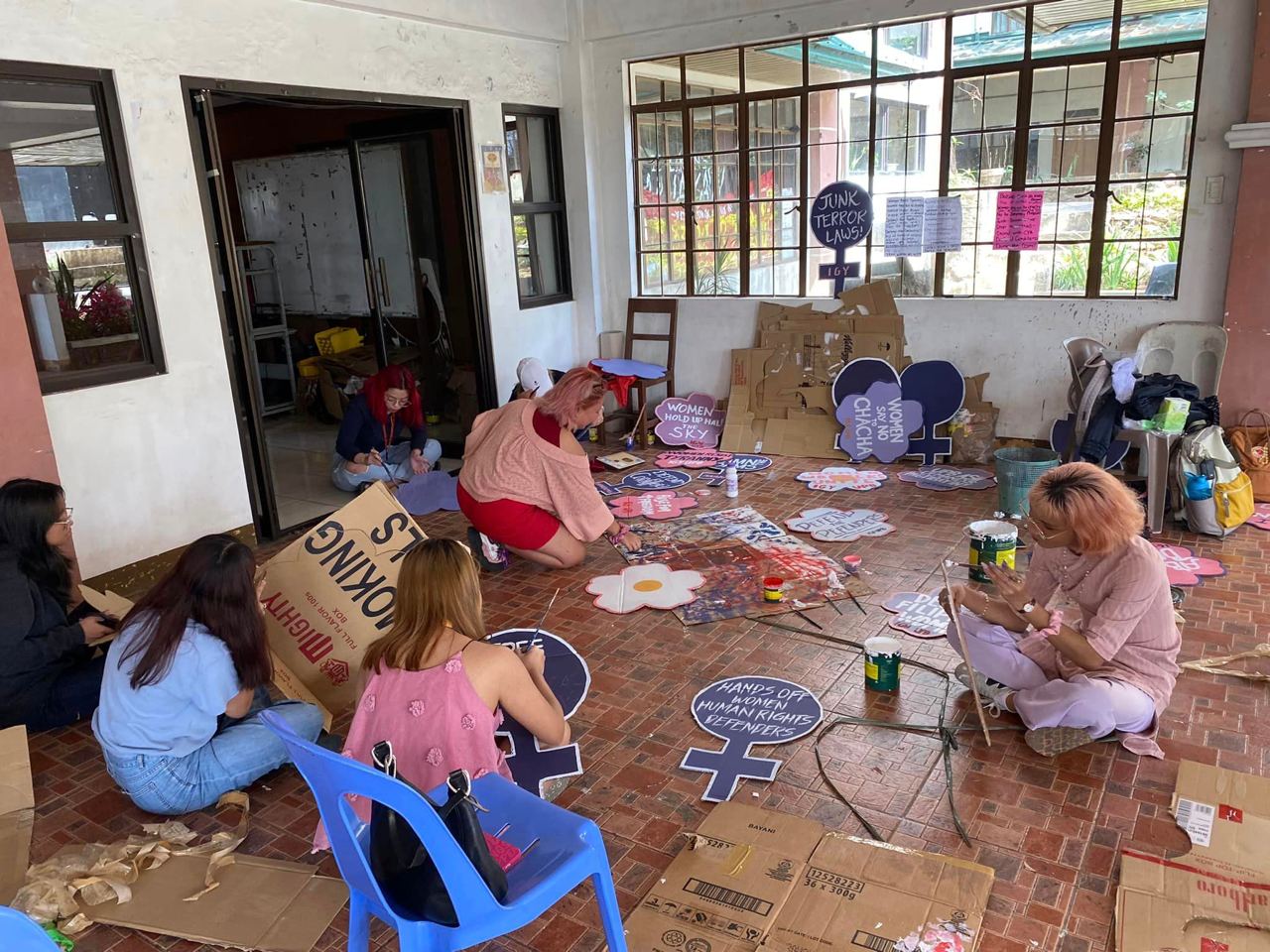
In all your work as part of the organization, what gives you hope? And for that matter, how important is hope in the struggle?
I derive hope from the fact that countless generations of women have struggled before me. Hope is what breathes life to the struggle, one that is rooted in a love—for other women and in solidarity with all other oppressed identities—that seeks to liberate. Our shared experiences of pain and resistance to systemic injustices are transformed by this love to collective persistent and meaningful acts of struggle towards a genuinely free and safe society.
Interview has been edited for length and clarity. Images sourced from Innabuyog-Gabriela Youth and Innabuyog Metro Baguio social media pages.
Continue Reading: 7 Books By Women For Women You Should Check Out This Women’s Month
